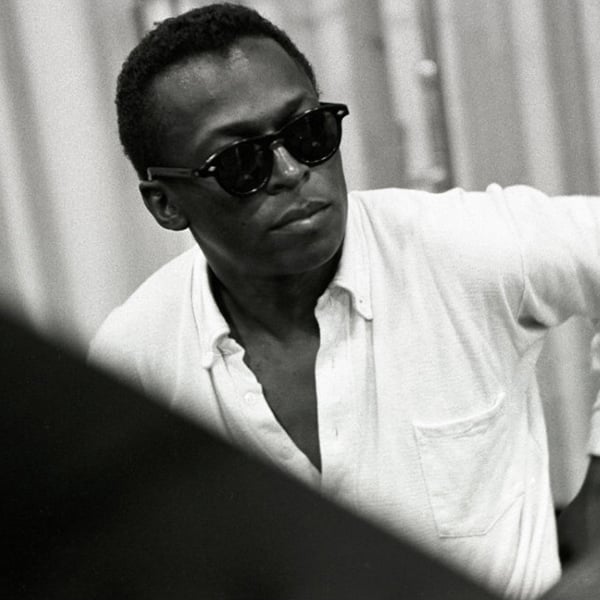
Given the popular wave of Brazilian samba music that engulfed the jazz scene of the early 1960s—“bossa nova” they called it when it was still nova to American ears—it was inevitable that most would try their hand at this new, gently rolling sound with its exotic rhythmic lilt and suggestion of overseas romance. Long before saxophonist Stan Getz took “Girl From Ipanema” to the top of the pop charts, Miles and Gil Evans reunited for their last studio project together, channeling the sounds of Rio. Or so goes the majority view.
In reality, despite a title referencing the best known samba on the album (“Quiet Nights of Quiet Stars”, aka “Corcovado”), Quiet Nights is a mix of situations and sources: Brazilian folk (“Prenda Minha”, titled “Song No. 2” on the album), Spanish classical (“Adelita” by guitar pioneer Francisco Tárrega, here called “Song No. 1”), and a few ballads, including one that stands out from the rest of the big band album: “Summer Night,” a quintet take featuring Miles’ playing muted then open trumpet and the start of a new band: tenor saxophonist George Coleman, pianist Victor Feldman, bassist Ron Carter, and drummer Frank Butler.
Added to reissues in the CD era was another hidden gem: “The Time of the Barracudas,” a 12-minute series of music cues for a short-lived play of the same name, co-written by Miles and Evans in October 1963; sections were later revisited by the arranger on his album The Individualism of Gil Evans for Verve Records. This mini-suite marks the last time the two would create music together, the bittersweet close of a famous and fruitful relationship. Their friendship and intrepid paths would continue—such as their shared passion for Jimi Hendrix—but they would never collaborate on a recorded project again.












